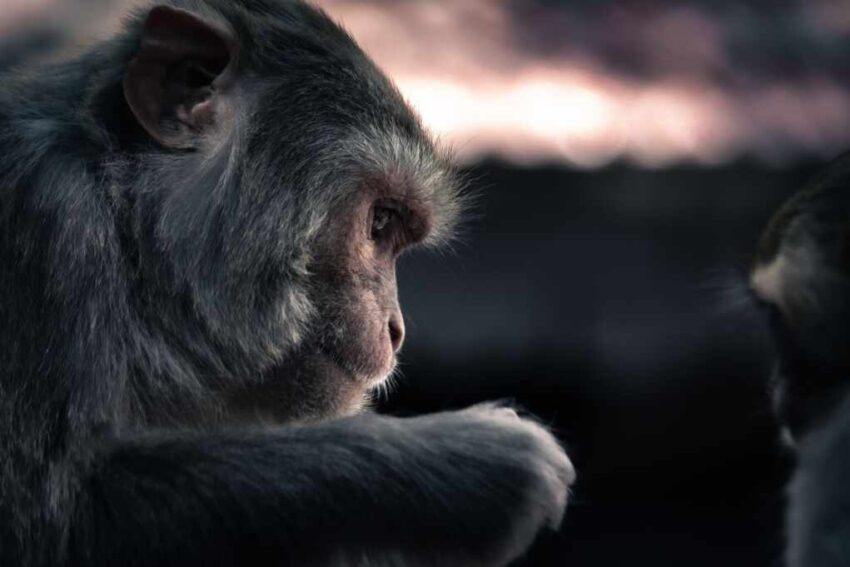A Mississippi monkey sanctuary is helping veterans with PTSD find healing faster than federal programs, challenging government-run therapies with real-world results.
At a Glance
- A Mississippi sanctuary uses rescued monkeys to aid PTSD recovery in veterans
- Founded and run by veterans, it operates without federal funding or oversight
- Army veteran John Richard reports major progress through bonding with a spider monkey
- National media attention has spotlighted the sanctuary’s success
- Critics question the approach’s scalability, but its results are drawing notice
Sanctuary Over Systems
Army veteran John Richard struggled with post-traumatic stress for over two decades. Despite years of government-sponsored treatments and medications, real relief remained elusive—until he met Louie, a spider monkey. Their connection, forged through shared time and effort at the Gulf Coast Primate Sanctuary, marked the beginning of Richard’s healing in a way the Department of Veterans Affairs had never delivered.
The Gulf Coast Primate Sanctuary, located in rural Mississippi, was founded by veterans for veterans. It offers a model that contrasts sharply with formal government systems: hands-on volunteering, animal care, peer-to-peer camaraderie, and no bureaucratic red tape. Here, veterans build enclosures, feed primates, and—through consistent, meaningful work—find renewed purpose.
Watch now: Mississippi Monkey Sanctuary Helps Veterans With PTSD · WLOX
Unlike traditional VA approaches, which are often bound by rigid protocols and institutional barriers, the sanctuary’s method relies on lived experience and mutual support. The results, while anecdotal, are increasingly hard to ignore. Richard’s experience, first profiled by Military.com, has drawn national attention as a symbol of grassroots innovation outperforming top-down strategy.
A Veteran’s Vision
Air Force veteran April Stewart founded the sanctuary after facing her own challenges with PTSD. Frustrated by long wait times, impersonal treatments, and complex paperwork in the VA system, Stewart opted to create a space for self-determined healing. The result was a community governed not by bureaucrats but by those who had lived through trauma and knew what recovery really required.
Volunteers—many of them veterans—take on daily responsibilities at the sanctuary, from animal care to construction projects. These duties serve as both therapy and skill-building, promoting accountability and emotional reconnection. While most research into animal-assisted therapy focuses on dogs and horses, Stewart’s team has shown that primates, too, can play a profound role in psychological recovery.
Their model doesn’t depend on academic validation or congressional grants. It works because it’s built on trust, autonomy, and shared effort. In doing so, it bypasses the inefficiencies and frustrations common to federal support programs.
Media Signals and Public Response
In recent weeks, several national outlets have covered the sanctuary’s work. The story’s appeal lies not only in its novelty—monkeys and military veterans—but also in its implications. The sanctuary is achieving results without large budgets, complex infrastructure, or Washington’s stamp of approval. It stands in contrast to an overstretched VA system that continues to face scrutiny over treatment efficacy and access delays.
The sanctuary’s success has stirred interest from veterans across the country, many of whom are reaching out in hopes of joining or replicating the model in their own communities. Skeptics, including some policymakers and clinicians, question whether such an approach can be scaled or standardized. But supporters argue that scalability should not be prioritized over impact—especially when lives are at stake.
Rather than trying to formalize or nationalize the sanctuary’s methods, advocates suggest that policymakers might learn from it: provide more flexibility, remove red tape, and support community-led efforts with proven results.
A Symbol of Self-Reliance
John Richard’s story is not just about one veteran and one monkey. It’s about the ability of local, veteran-led solutions to outperform national systems bogged down in complexity. The Gulf Coast Primate Sanctuary is a reminder that not all problems need billion-dollar answers—some require empathy, mission-driven work, and space to reconnect.
As more veterans take control of their healing journeys, the sanctuary’s model may inspire a broader reevaluation of what effective support truly looks like. Whether or not Washington listens, one thing is clear: in a small corner of Mississippi, healing is happening—and it didn’t need a congressional hearing to start.
Sources
Click this link for the original source of this article.
Author: Editor
This content is courtesy of, and owned and copyrighted by, https://deepstatetribunal.com and its author. This content is made available by use of the public RSS feed offered by the host site and is used for educational purposes only. If you are the author or represent the host site and would like this content removed now and in the future, please contact USSANews.com using the email address in the Contact page found in the website menu.





